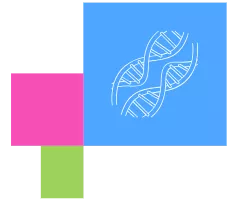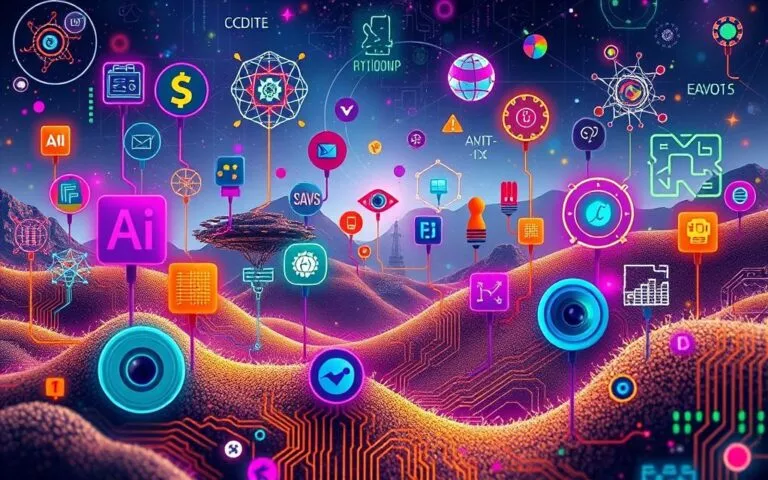Exploring Free Open Source Quantum Computer Systems
In recent years, quantum computing has made huge strides. This is thanks to the growth of free open source quantum computer systems. These systems are a goldmine for developers, researchers, and fans, promoting teamwork and new ideas.
They allow everyone to play with complex algorithms and tools. Before, only big corporate labs could do this.
Using these open source systems, people can learn more about quantum mechanics. They also help add to a shared pool of knowledge and tools. This piece aims to look at the various systems out there. We will highlight their benefits and urge people to use them in pushing quantum computing forward.
Introduction to Quantum Computing
Quantum computing introduces a big change in information processing. It uses quantum mechanics principles, especially with qubits. Qubits can be in a superposition state, meaning they can represent 0 and 1 at the same time. This capability boosts processing power greatly. It allows quantum computers to solve complex problems faster than ever. The definition of quantum computing keeps evolving, offering endless possibilities in various fields such as physics and business.
What is Quantum Computing?
Quantum computing is based on quantum mechanics. With entanglement and superposition, qubits work in ways classical bits can’t. This increases speed and the range of problems that can be solved. As technology advances, new algorithms like Grover’s and Shor’s show quantum computing’s benefits. For those interested, the Qiskit Textbook and Microsoft’s kit are great learning tools.
The Importance of Open Source in Quantum Computing
Emerging technologies grow through collaboration. The role of open source in quantum computing is crucial. It encourages teamwork among developers, researchers, and fans, leading to new discoveries. Tools like Qiskit and the Quantum Open Source Foundation give access to advanced computing. They invite beginners to join the quantum field. These efforts make quantum computing accessible to all, speeding up progress in understanding quantum systems. Collaboration is key to developing new quantum technologies and ideas.
Benefits of Free Open Source Quantum Computer Systems
Free open source quantum computer systems mark a big change for developers and researchers. They let more people try quantum programming without worrying about cost. This open source world boosts shared learning and creativity by working together, leading to a wide range of contributions worldwide.
Accessibility for Developers and Researchers
Open source systems play a key role in making quantum computing easier to get into. They provide tools and resources without the usual high costs. For example, IBM’s Qiskit supports loads of software projects. By the end of 2023, about 300 projects will have used Qiskit. This huge network helps create a fair environment for everyone interested in quantum computing.
Community Collaboration and Innovation
Collaborating is at the heart of the open source idea, bringing great benefits to science and quantum computing. The Linux Foundation started the Post-Quantum Cryptography Alliance with big names like Google, NVIDIA, and AWS. They all pitch in to push innovation further. With both volunteers and paid programmers helping, open source projects grow in creativity and utility. The more people help out, the stronger and more lasting quantum technologies become.

Popular Free Open Source Quantum Computer Systems
Open source quantum systems are changing quantum computing radically. They offer full platforms that help researchers and developers dive into quantum algorithms without needing a lot of resources. Here, we look at some leading free open source quantum computing frameworks. We’ll highlight their special features and what they can do.
Amazon Braket: An Overview
Amazon Braket is a leading, fully managed quantum computing service. It makes it easier to build and test quantum algorithms. This platform helps you work with different quantum hardware, which is great for researchers and organisations interested in quantum technologies.
IBM Qiskit: A Comprehensive Framework
IBM Qiskit offers a strong framework for using quantum computers. It lets researchers build quantum circuits, run algorithms, and simulate on classical systems easily. It also supports noisy quantum computers, meeting a variety of needs and helping us learn more about quantum computing.
Google Cirq: Supporting NISQ Circuits
Google Cirq helps with creating, simulating, and running quantum algorithms for Noisy Intermediate Scale Quantum (NISQ) circuits. It has an easy-to-use Python interface. This means developers can use both simulation tools and real hardware. It shows how important open source systems are for new quantum technology.
| Platform | Key Features |
|---|---|
| Amazon Braket | Fully managed quantum service, integrates with various hardware backends |
| IBM Qiskit | Comprehensive framework, support for pulse-level programming, classical simulation |
| Google Cirq | Focus on NISQ circuits, Python programming interface for both simulation and real hardware |
Each platform underlines how open source projects make quantum computing more accessible and innovative. As this field grows, the availability of free open source quantum computer training is increasing. This training inspires new quantum thinkers.
Key Features of Notable Free Open Source Systems
Open source quantum systems are packed with features for many needs in quantum computing. They focus on being accessible and encourage people to work together. Each has its own benefits that help developers and researchers. Let’s look at Microsoft’s Q#, Rigetti Forest, and D-Wave Ocean closely.
Understanding Q# by Microsoft
Microsoft’s Q# programming language is a major part of their Quantum Development Kit. It works well with Visual Studio, making it easier for developers to get started. Q# has lots of libraries and examples. This helps in building quantum algorithms and solving complex problems efficiently.
Exploring Rigetti’s Forest and Its Capabilities
Rigetti Forest provides tools for creating and testing quantum algorithms. It includes Quil, a flexible quantum instruction language. With it, users can write, simulate, compile, and run their quantum programs easily. Rigetti’s platform promotes working together and trying new things, pushing quantum technology forward.
D-Wave’s Ocean Suite for Complex Problem Solving
D-Wave Ocean is designed for solving tough problems with quantum annealing. It comes with a set of tools for making software that can handle real-world challenges effectively. Ocean allows users to use D-Wave’s advanced quantum system. This shows how quantum computing can be used in optimization and machine learning.
Free Open Source Quantum Computer System: Usage and Applications
Free open source quantum computer systems are creating new ways to explore complex quantum algorithms. They offer new insight into quantum simulations and make quantum computing error correction better. These systems are important not just for learning. They are also proving their worth in real-world uses like optimisation, cryptography, and material science.
Simulations and Error Correction
Understanding complex quantum systems is crucial, and quantum simulations help a lot. With free open source tools, researchers can run deep experiments and make things more efficient. Fixing errors is key, especially as quantum systems get bigger. Tools like Qiskit and Microsoft’s Quantum Development Kit help make quantum algorithms more reliable.
Quantum Algorithms for Real-World Problems
Quantum computing is starting to change industries by solving tough problems. It’s boosting security with better cryptography and solving big logistical issues to save money. As the technology grows, more developers and companies are starting to use it.
Case Studies and Success Stories
There are many success stories about using free open source quantum systems. For example, IBM Quantum lets users access powerful systems, showing how useful these resources can be. Companies using D-Wave’s or Rigetti’s tools show quantum computing’s impact in the real world. This progress excites more innovation in this thrilling area.

| Application Area | Quantum Frameworks | Success Metrics |
|---|---|---|
| Logistics Optimisation | IBM Qiskit, Google Cirq | 30% Reduction in Costs |
| Cryptography | D-Wave Ocean Suite | 100% Data Security |
| Material Science | Microsoft Quantum Development Kit | Improved Simulation Speed |
| Pharmaceutical Research | Rigetti’s Forest | Accelerated Drug Discovery |
This field keeps growing with help from the community and open access to top computing tools. It is shaping the future of technology every day.
Developing Quantum Applications with Open Source Tools
Quantum computing is starting a revolutionary era, especially in creating quantum applications. It’s key to master various quantum programming languages designed for efficient algorithm use. Languages like Microsoft’s Q#, IBM’s Qiskit, and Google’s Cirq are essential. They support different quantum hardware and help in innovation and open-source collaboration.
The mix of quantum tools with classic computing is vital for quantum applications. This blend allows each system to do what it does best. For instance, classical systems handle simpler tasks and quantum systems take on heavy computations. This way, developers can solve complex problems better and boost productivity. By 2027, the quantum computing market might hit $8.6 billion.
Platforms like TKET from Cambridge Quantum show the quantum community’s collaborative spirit. These frameworks let developers build strong applications and work with different quantum devices. With companies like D-Wave Systems and Honeywell Quantum Solutions leading the way, learning quantum programming languages is crucial. This joint effort in quantum application development is set to change technology’s future, improving things like optimisation and machine learning.
FAQ
What are free open source quantum computer systems?
Free open source quantum computer systems let people use quantum computing for free. They help developers and researchers try out quantum programming. They also help people work together in a community.
How does quantum computing differ from traditional computing?
Quantum computing uses quantum bits, unlike traditional computing’s use of binary bits. This lets quantum computers do many calculations at once. So, they solve complex problems much faster than traditional computers.
Why is open source important in the realm of quantum computing?
Open source makes it easier for people to work together, driving faster innovation. It gives everyone access to advanced quantum computing. This helps the quantum technology field grow.
What are the key benefits of using free open source quantum computer systems?
These systems make it easier for people to get involved in quantum computing. They encourage working together and coming up with new ideas. Users can also help make the systems better.
Can you name some popular free open source quantum computer systems?
Some well-known ones are Amazon Braket, IBM Qiskit, and Google Cirq. Amazon Braket makes it easy to create and test quantum algorithms. IBM Qiskit offers lots of tools for quantum computing. Google Cirq is great for specific types of quantum circuits.
What are the key features of Microsoft’s Q# programming language?
Microsoft’s Q# makes developing quantum algorithms simpler. It works well with Visual Studio. It also focuses on simplifying the development of quantum apps.
How do Rigetti’s Forest and D-Wave’s Ocean Suite enhance quantum computing capabilities?
Rigetti’s Forest provides tools for all parts of quantum programming. D-Wave’s Ocean Suite is good at tackling complex problems through quantum annealing. Both show different strengths for practical use.
What applications can free open source quantum computer systems support?
They’re useful for simulations, improving quantum algorithms, and solving real-world problems. This includes work in optimisation, cryptography, and material science.
What programming languages are commonly used for developing quantum applications?
Languages like Q#, Qiskit, and others are made for quantum computing. They help implement quantum algorithms well and work with classical computers too.
How can classical and quantum computing systems be integrated?
By combining them, developers can use each system’s strengths. Classical systems handle certain tasks, and quantum systems do heavy computing. This mixed approach is the future of computing.











